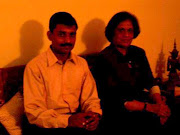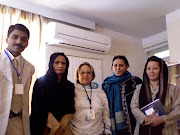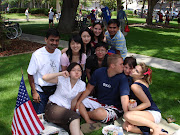Rapid changes in the global economy and international politics are raising, once more, an eternal issue in Russia: the country’s relations with Europe, and with the Euro-Atlantic region as a whole. Of course, Russia partly belongs to this region. Yet it cannot and does not want to join the West wholeheartedly – at least not yet. Meanwhile, this choice looks very different now compared to just a few years ago.
It is becoming obvious that the Euro-Atlantic world, whose economic and political model seemed so triumphant 20 years ago, is now lagging somewhat behind China and other Asian countries. So is Russia, where, despite encouraging talk about innovation-based development, the economy continues to de-modernize as corruption has been allowed to metastasize, and as the country relies increasingly on its natural-resource wealth. Indeed, it is Asia that has turned out to be the true winner of the Cold War.
These rising powers raise problems regarding Russia’s geo-strategic choices. For the first time in decades, the values gap between Russia and the EU appears to be increasing. Europe is overcoming state nationalism, while Russia is building a nation state. Broken by history and not wishing to be ravaged by war again, Europeans have embraced compromise and renounced the direct use of force in international relations.
Russians, on the other hand, emphasize their “hard power,” including military force, because they know that they live in a dangerous world and have no one to hide behind. And, because of the country’s comparative lack of “soft power” – social, cultural, and economic attractiveness – it stands ready to use the competitive advantages (i.e., its resource wealth) available to it.
Internal political developments in Russia are also pushing the country in a different direction from the West. Quite simply, Russia is moving away from democracy.
This emerging values gap is not an insurmountable obstacle to geostrategic rapprochement. But, coupled with mutual irritation, which is particularly strong in Russia, closing the gap is becoming much harder. For, while Russia ’s elite never considered itself defeated in the Cold War, the West essentially treated Russia as a defeated country – an attitude symbolized by NATO’s eastward expansion, which laid a deep foundation for ongoing tension. It was only after the West encountered an armed rebuff in South Ossetia that NATO expansion was stopped in its tracks. Yet NATO has not given up on further enlargement.
NATO expansion is nothing more than the extension of its zone of influence – and in the most sensitive, military-political sphere . And yet the West’s unwillingness to abandon that effort is coupled with a repeated refusal to recognize Russia’s right to have its own zone of interest.
So NATO expansion has left the Cold War unfinished. The ideological and military confrontation that underlay it is gone, but the geopolitical rivalry that it entailed has returned to the fore. Thus, the old mentality survived on both sides.
Energy debates are another example of this. Non-Russian Europe should thank the Almighty for the presence of energy-rich Russia at its borders, while Russia should be thankful for having such wealthy customers. But the natural differences in the interests of energy consumers and producers have been given a political/security twist – witness the discussions about an “Energy NATO.”
F aced with the impossibility of advantageous accession to Euro-Atlantic institutions, Russia is drifting fast towards alignment with China – a “younger brother,” though a respected one. Russia’s “Asian choice” of today is not the same as the Slavophile/Eurasian choice of the past. On the surface, it looks like a choice in favor of a rapidly rising civilization. But the current estrangement from Europe – the cradle of Russian civilization and modernization – threatens Russia’s identity and will increase its geostrategic risks in the future.
Europe does not benefit from this estrangement either. It will continue to move towards beautiful decay – Venice writ large. The United States also loses. Without Russia, which will remain the world’s third strongest power for the foreseeable future, it is impossible to solve the key problems of international security.
The current Euro-Atlantic security architecture seems to suit the majority of Americans and Europeans, though it is becoming increasingly fragile and counterproductive. So Russia will struggle to create a new architecture largely on its own – whether through a new treaty on collective European security, or even through its accession to NATO. This is not only in Russian political and civilizational interest, but it also reflects our duty to the entire community of Euro-Atlantic nations, which is being weakened by the “unfinished Cold War.”
The idea of a “Union of Europe” between Russia and the EU should be put on the long-term agenda. That Union should be based on a common human, economic, and energy space. The combination of a new security arrangement for the Euro-Atlantic community and the establishment of the Union of Europe could arrest the decline in the international weight of the West.
****Sergei Karaganov is Dean of the School of International Economics and Foreign Affairs of the Russian Research University – Higher School of Economics. This article is based on a report on Euro-Atlantic security prepared by the Russian group of the Valdai Club, of which Professor Karaganov is Chairman. ***
Tuesday, December 29, 2009
Subscribe to:
Post Comments (Atom)












No comments:
Post a Comment